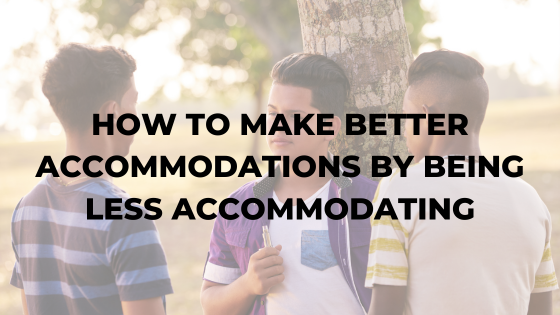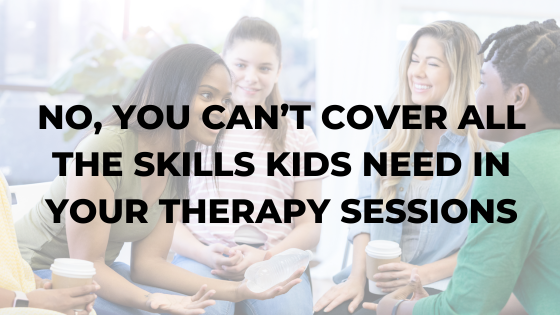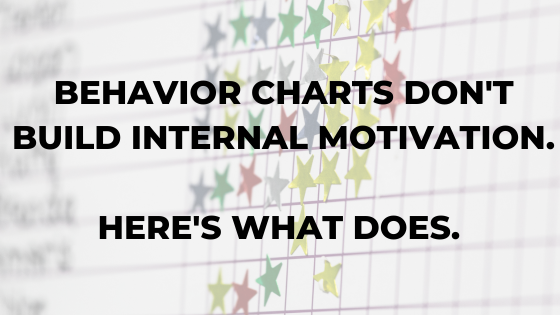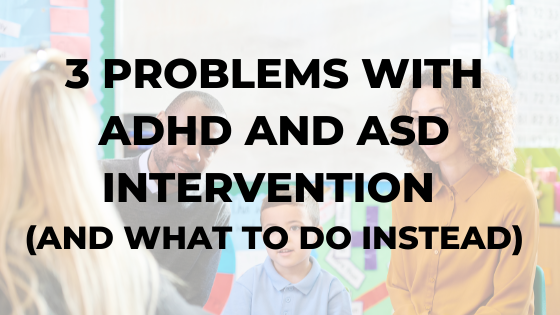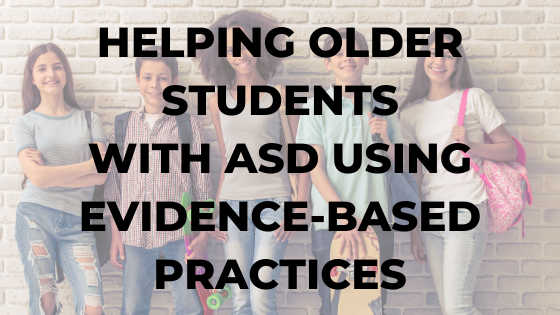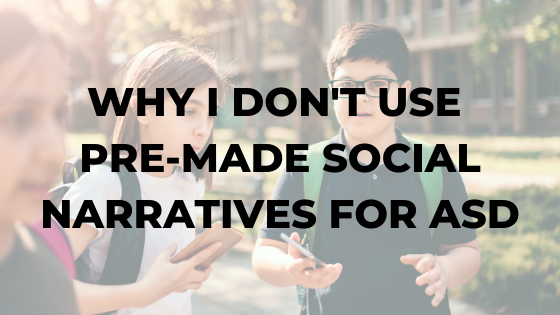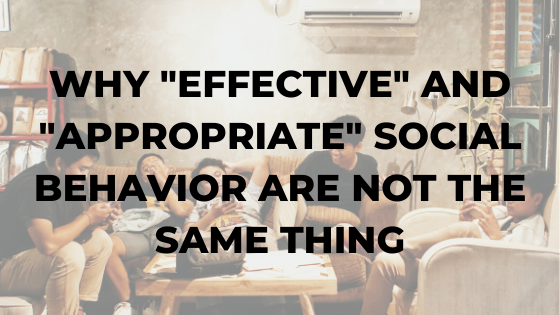Writing goals for executive functioning can be challenging because it’s very hard to quantify. Additionally, because executive functioning impacts almost every functional skill we engage in, almost every goal on any IEP or therapy plan is technically an executive functioning goal. When we’re focusing on other areas such as writing, reading, math, language, or other…
Category: Autism
How to make better accommodations by being less accommodating
“But isn’t this just forcing students to act neurotypical?” This is one of the most common objections I get when I talk about executive functioning; specifically executive functioning that impacts social relationships. Executive functioning skills are important for anyone interested in having relationships with others; neurotypical or not. Planning interventions in a way that is…
No, you can’t cover all the skills kids need in your therapy sessions.
When I tell related service providers that they should be coaching and training other members of their school teams, the most common objection I get is that they don’t have time. However, most of them ALSO feel like they have too many skills to work on in therapy. They ask, “How can I possibly get…
Anxiety and executive dysfunction often go together. Here’s why.
Many children continue to experience anxiety about new situations or avoid challenging tasks, despite going to therapy and talking through their feelings. This is often because the intervention is not adequately supporting students’ executive functioning skills. In this video, I explain why anxiety and executive dysfunction go hand-in-hand, and what’s often missing when anxiety persists…
Behavior charts don’t build internal motivation. Here’s what does.
Many K-12 professionals see behaviors considered to be defiant or lazy, even though classroom management systems are in place. That’s because behavior charts don’t support students’ executive functioning, and they’re often too abstract to help motivate kids through discomfort or learning curves. They also don’t support important skills such as time-perception, episodic memory, future pacing,…
3 problems with ADHD and ASD intervention (and what to do instead)
SLPs, educators, and parents of neurodivergents usually want to help kids as much as possible so they can lead successful, productive, happy lives. I know that’s always been my goal as a therapist and as a parent. That’s why I decided to become an SLP…and it’s also why I went back and got my doctorate…
Helping older students with ASD using evidence-based practices
When I search through a lot of commercially available social narratives for people with ASD, I often find myself underwhelmed. In many cases, they just don’t fit the specific scenarios relevant to students. In other cases, they’re too cutesy and not a fit for older students. There’s a lot about playing with friends, taking turns…
Why I don’t use pre-made social narratives for ASD
Every so often, people ask me for some social scripts for students with ASD and related diagnoses (pre-made, from worksheets or flashcards). The truth is, as much as I appreciate what people are trying to accomplish with social narratives worksheets and printouts… It would feel disingenuous to offer them because I rarely used them…nor do…
Why “effective” and “appropriate” social behavior are not the same thing (and what it means for intervention)
A lot of the goals I see for pragmatic language center around “appropriate behavior”. And a lot of the questions I get about social skills interventions are about how to write/track those goals effectively. You may have noticed that a lot of your students in this population get reprimanded for acting out in class or…

